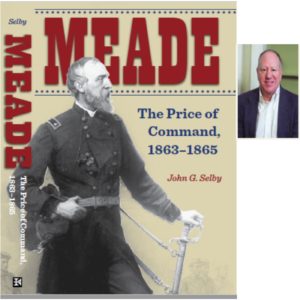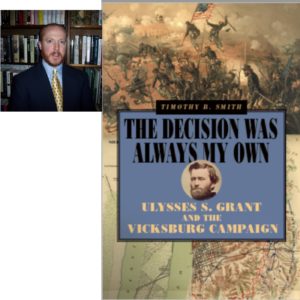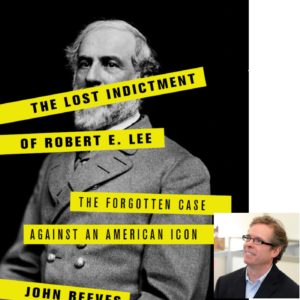Podcast: Play in new window | Download
Subscribe: RSS
 Dr. John Selby is a professor of history at Roanoke College. His concentrations are American 19th century history, the US Civil War, and he Vietnam War as well as American history in general. We discussed his latest book on General Meade.
Dr. John Selby is a professor of history at Roanoke College. His concentrations are American 19th century history, the US Civil War, and he Vietnam War as well as American history in general. We discussed his latest book on General Meade.
0:50 – John talks about how he got into writing about the US Civil War. His first study was on the lives of seven Confederate soldiers. He then co-edited a volume on Confederate papers.
4:16 – John talks about the theme of this book.
8:01 – John talks about the Meade memorial in Washington, D.C.
12:34 – John mentions Meade’s work on lighthouses.
22:33 – John talks about the two people who caused Meade the most problems.
23:04 – John talks about general Sickles and his problems with General Meade.
30:38 – John talks more about why Meade doesn’t get credit for the victory at Gettysburg.
36:57 – John talks about the resources he used for his research. It included Meade’s voluminous number of letters.
45:55 – John talks about two questions he grappled with while doing his research.
For more “Military History Inside Out” please follow me on Facebook at warscholar, on twitter at Warscholar, on youtube at warscholar1945 and on Instagram @crisalvarezswarscholar
Guests: John Selby
Host: Cris Alvarez
Tags: military, history, military history, conflict, war, interview, non-fiction book, US Civil War, George Meade, Robert E. Lee, Army of the Northern Virginia, Army of the Potomac, leadership, Union, Confederate


